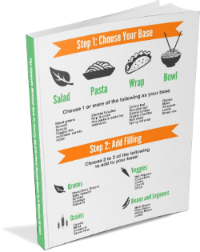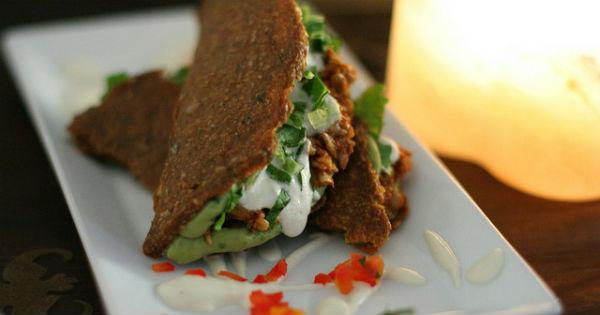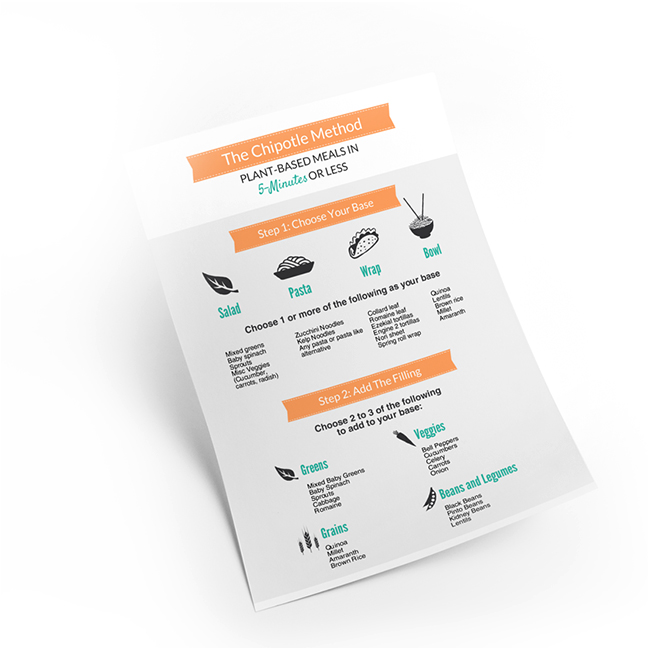
Image Attribution: J. Dickert
Many of us struggle to get healthy for years. We’ve always known that we need to make health a priority, but it just never really happened.
We explore different options, started eating better, go to the gym a few times, but the new habits don’t stick and the old patterns creep back in.
Until that moment happens.
Sometimes it’s an inspiring film. Sometimes it’s stepping on a scale and saying enough is enough. Maybe it’s a moment of truth taking a good hard look in the mirror.
Many times the moment happens when watching a loved one struggle with a serious health challenge.
Or sitting in the doctor’s office and hearing those dreaded words…even though you knew they were coming.
Whatever the cause, suddenly things are different — all of the sudden you just know that you can’t, you won’t, put it off any longer.
You are going to get healthy. You are going to do whatever it takes, and this time it is going to work.
When these moments happen, people often turn to Plant-Based Whole Foods Diet
And for good reason. When you decide to put your health first, there are many compelling arguments that support the transition.
But for most of us going plant-based is like stepping into a brand new world. Suddenly you don’t know much about food, one of your closest companions.
You don’t know where to get it, how to prepare it, or what it’s going to cost you.
You might think you’ll never know the comfort of your favorite food on a cold day, or enjoy the sweet indulgence of a holiday ever again.
There are many questions and daunting challenges as you begin your new journey.
The good news? Thousands of people are taking this journey with you.
You can succeed on a plant-based lifestyle, and it doesn’t have to be super challenging.
If I could go back and counsel the newly plant-based me, these are the hard won nuggets of wisdom that I would share:
1. Don’t get caught up in the minutia
If you haven’t encountered it already, you will soon become painfully aware of just how much conflicting health information there is out there.
You’ll see bombastic and sensational headlines like, “Is Kale Killing You?” and “The Tragedy Of The Healthy Eater.”
Low fat vs high fat. Is coconut oil a miracle food or a calorie bomb? Are smoothies good or bad for you? Should I eat mostly raw food? What’s up with salt?
You may be tempted to throw up your hands in frustration and just go back to what you were doing before. Don’t.
For beginners almost none of this matters. Just eat as many veggie centric non-processed meals as possible, and keep doing it.
Don’t throw out the baby with the bathwater over some relatively small disagreement in the health community.
Over time you will learn more and your dietary approach and decisions will become more refined. For now, just protect that baby lifestyle and let it grow.
If you are on the brink of throwing out your whole commitment towards healthy eating because you can’t make a small detail work, then make the adjustment.
We are all “cognitive misers” and have limited cognition and will power. Your will power is a very precious resource when changing your lifestyle. Don’t drain it by sweating the small stuff.
2. Become A Health Scientist
To succeed long term, you need to become a Health Scientist.
Why? A Health Scientist impartially observes the data, methodically tests assumptions, and refines their ideas based on real world data.
If you can care more about the truth than protecting a position, you will always have a way of sorting through the latest diet craze, the startling new research, the endless debate about whether or not coffee is good for you and so on.
Put the truth about your health first, and you’ll find it.
3. Learn one thing at a time (transition smart)
New York Times bestselling author Tim Ferriss is well known for his accelerated learning ability.
He prides himself on the ability to quickly learn any new skill. In fact, he wrote a book dedicated to the topic.
In a recent interview, Tim explained that out of all the skills he has acquired, learning to cook was the most difficult and eluded him for some time.
He attributed his failure to this fact:
“When I looked back I realized I was trying to learn four things at once. How to shop, how to prep, how to cook, and how to clean up.”
When changing your lifestyle, you are faced with a similar scenario. There are new ingredients, new devices, and new ways of preparing them.
Most people will tell you to “just do it.” However learning all these new skills can be a momentous task.
When you feel overwhelmed, take a step back. It’s moments like these that put all you have worked for in jeopardy. You’ll be tempted to throw in the towel.
If plant-based eating is completely new for you, recognize that you have three to four new skills to learn and tackle them one at a time.
We all think that we are different and will be more successful than other people who have struggled. The truly wise person is realistic about the challenges they face.
Can you tackle learning to shop first? Find a recipe that looks super delish that has three to five unfamiliar ingredients. Next time you go shopping, add those ingredients to the list, and make that new meal.
Do this at least once a week until it’s easy to find a recipe with all familiar ingredients. At that point start cooking more plant-based meals. Maybe five meals a week, then seven, then ten, then everyday except the weekends.
During your first couple weeks, save up some money and plan to go out to eat every 2-3 days
Stressed out about the prep? Start with pre-prepared or canned items. It doesn’t have to be all from scratch right away.
Tim even recommends serving meals on paper plates when starting out so you don’t have to worry about the clean up. The reduced environmental impact of a plant-based diet long-term is thousands of times more than using a few paper plates when you start out.
Make it easy on yourself.
We all think that we are different and that we can “just do it.” Be realistic about the challenge that is in front of you, break up the new skills that you must learn into chunks and transition smart.
4. Plan for dealing with unsupportive people
You’d never guess it, but your biggest obstacles to long-term success are the people that love you most.
On a subtle level, your decision to improve your health is a statement about the choices that your friends and family are making.
This will automatically make them defensive, and when they get defensive they will not be as supportive as they would like to be. It’s just the way it works.
You should know right now that you are always going to get people trying to get you to eat what you no longer want to eat. You’ll always get asked questions like “Where do you get your protein?” Holidays and social outings are going to be difficult.
There are tactics and tips that make the process easier over time, but it will never be effortless.
That is why you must develop a supportive social network. You don’t have to dump your unsupportive friends/family, but you must plug into a group that understands what you are going through.
A local meetup or just finding a friend to take the journey with you is best. Virtual groups work in too. Go to meetup.com and type in vegetarian, vegan, live food, yoga, health, etc and see if there are any groups already gathering in your area.
If there aren’t, start one. This support is vital.
5. Plan for failure
I promise you that I’m not being a debbie downer here. Rather I want you to let you know that many people fall off the wagon and at some point, and you probably will too.
The difference between a novice and a veteran is not that one falls off the wagon and the other no longer does. The difference is how they respond.
The novice feels guilty, ashamed, and uses the backslide to justify a whole ‘nother round of backsliding. “Well, I already ate the cookie, I might as well sit in my room and eat a turducken, buffalo wings, and tiramisu!”
The veteran acknowledges that this is just part of the path, gets back on the wagon, and tries just a little bit harder the next day.
Failure isn’t falling down. It’s refusing to get back up.
6. Create accountability
In one of my favorite books author Jonathan Haidt uses the metaphor of an Elephant and a Rider to explain the divisive nature of our psychology.
The Rider is analytical, rational, deliberates and makes decisions about the future. The Rider is most definitely the one that interested you in this crazy new lifestyle.
You considered the facts and decided that certain changes need to be made and decided to implement them. This is what the Rider does best.
The Elephant on the other hand is emotional and cares only about its own pleasure, NOW.
The Rider sets the alarm for a 5am run, and the Elephant turns it off, sleeps until 10am, and then eats a pint of ice cream.
Does this ring a bell? Ever feel like you are two people? This is why.
Especially as you are developing new habits, you’ve got to rein in the Elephant. It’s big and cumbersome, but not super smart. You can trick it.
One of the best ways to do this is to create accountability.
There are many ways to do this, and it can be super fun. Especially if you let yourself be a little bit vulnerable.
Commit to making public updates on your progress. Make a bet with a friend with some sort of socially embarrassing outcome.
I love this one: Do you hate the Democrats, the Republicans, the NRA, or Green Peace? Set up a jar and make a donation to your arch nemesis every time you fail to follow through.
www.stickk.com is a great resource that allows you to set a goal, set the stakes (money is optional), appoint a referee, and add friends for social support.
This stuff isn’t easy, and we all have to grapple with the elephant. If you are really serious about making the change, this will increase the likelihood that you’ll follow through at least ten times.
Set up some accountability right now.
…Did you do it?
7. Build a system
One of the best ways to create follow through is to make your decisions in advance.
Imagine that you just had a long day at work and come home super exhausted. You’ve just started this new lifestyle, and you are committed.
So you pull out the new cookbook and find a recipe that looks good. You don’t have any agar agar, irish moss, or nopal cactus, and so off to the store you go.
As you begin to put the meal together, you read the following instruction: Mandolin a zucchini.
What the what?!
45 minutes later (if you’re lucky), you’ve made your delicious plant-based meal and you’re ready to eat.
Are you actually going to take the time to make this meal? Maybe. What if you’ve got chips in the pantry? What if Jack In The Box is five minutes from your house?
You might have superman’s will, but there is no reason to make it that difficult. The best thing you can do is to take your willpower out of the equation as much as possible.
How do you do that? You create a system.
What this means is that you’ll need to develop a plan and a routine for what you are going to eat, when you are going to eat it, and ways to get through the tough moments.
For example, I keep a combination of items on hand that can be pulled together into a delicious satisfying meal in just five minutes. It took me a little while to figure out these staples, but now I have a go to if I get hungry or don’t have the time or energy to cook up a meal.
I have 3-5 delicious treats that I can use to satisfy my sweet tooth, and if I need something to nosh between meals, I have 3-5 go to healthy snacks.
I order the items I use all the time in bulk either from Amazon or the local coop and it saves money and time.
Now my system runs like clockwork, and I don’t ever have to think about it. I don’t exercise my willpower at all to make the healthy choice. It’s just there — always available and satisfying.
Maybe you grocery shop on Mondays and Thursdays, prep veggies on Tuesdays and Fridays, and cook staples (beans, quinoa, etc.) on Sundays.
This is going to take some time, some trial and error, but once you are set up it makes things so much easier.
There are some great resources and examples out there. Meal plans are a great start.
8. Be realistic about what is going to work for you
Dirty little secret time. I care enough about your success to be honest with you. Transitioning to a plant-based lifestyle takes work.
It is possible to eat great on a budget, but it’s going to take some time. It is possible to eat great with no time, but it’s going to cost you some money.
Rather than over-stretching yourself and trying to do everything all at once, be realistic about what is going to work for you and plan accordingly.
Transition smart, start with two or three days a week and ease into it.
Are you in a position to hire a chef? Do that for a month or so while you get on your feet. Can you afford to eat out at plant-based whole food restaurants a few times a week or have meals delivered for a while?
Be realistic about the challenges that you are facing and plan accordingly.
Think of it like college. You go to college to build an educational foundation that pays off for a lifetime. Changing your lifestyle is similar.
You are going to have to invest in yourself, study up, do some experimentation and struggle a bit up front.
But it won’t be hard forever. Putting in this hard work up front will result in a lifetime of better health. You’ll never regret it.
Are you struggling to eat a more plant-based diet? What is the biggest challenge? Have you succeeded? What is the best tip you can share for others?
Add your story below in the comments. I’ll read every single one.
We will never sell your information or spam you, ever.
Matt Jager is a wellness activist, yogi and co-founder of True Wellth. His life mission is to transform the healthcare and food system in this country, so that every single person has access to the tools and support they need to look and feel their best, control their health, own their happiness and revolutionize their well-being.
 Feel like you live in the kitchen? Get our FREE Chipotle Method PDF, Recipe Sampler, and Email Course and learn how to make quick, easy meals that are delicious and satisfying.
Feel like you live in the kitchen? Get our FREE Chipotle Method PDF, Recipe Sampler, and Email Course and learn how to make quick, easy meals that are delicious and satisfying.




